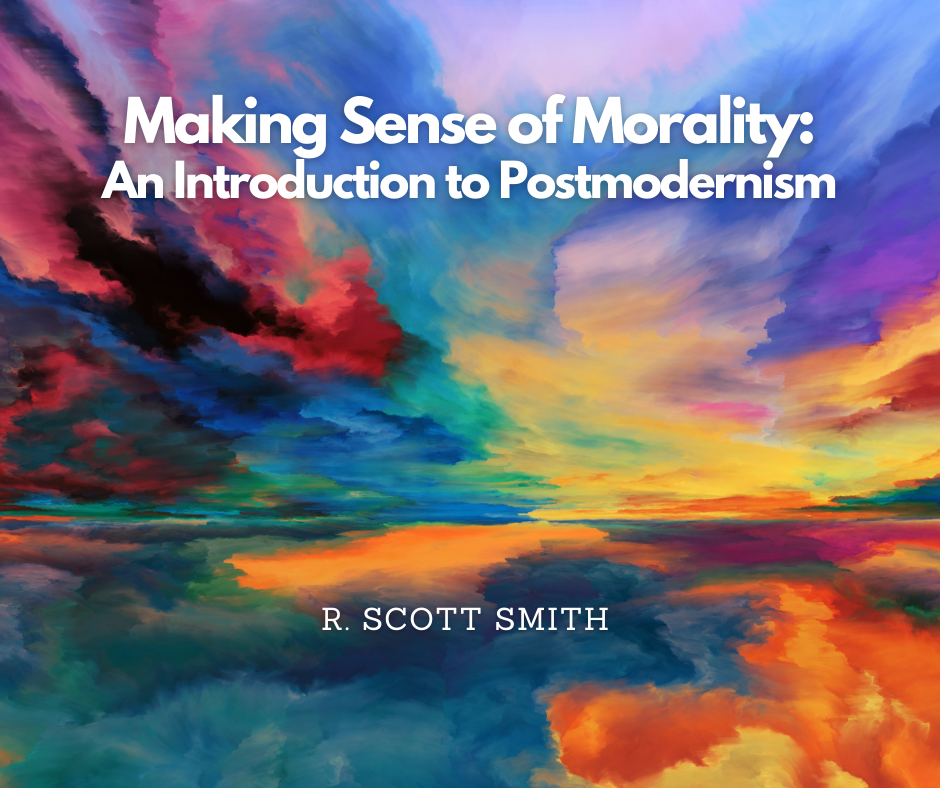Making Sense of Morality: Problems with Naturalism I
/Editor’s note: R. Scott Smith has graciously allowed us to republish his series, “Making Sense of Morality.” You can find the original post here.
Introduction
Now that we have completed a survey of several versions of naturalistic ethics, we should consider a few big-picture issues for naturalism. Should we accept it as true? When we looked at Singer’s views, I raised one issue: it seems there is no sameness of one’s personal identity on naturalism. But, without that, there are no continuing subjects. Here, I will argue that on naturalism, we will lose all knowledge of reality because there are no essences.
Daniel Dennett and Knowledge on Naturalism
Dennett (b. 1942) is a leading philosopher of neuroscience. He denies there are any real, immaterial, “mental” states (e.g., thoughts, beliefs, desires). Nor is there any real intentionality, the ofness or aboutness of mental states.
Let me explain intentionality more. For many, it is a property of thoughts, beliefs, observations, concepts, meanings, and more. It seems these always are of or about something, even if that thing does not obtain in reality (e.g., Pegasus). I can think of Pegasus, even though there isn’t a winged horse. So, it seems intentionality would not be physical. If it were, it seems that having a thought about something would require that thing exists in order to physically cause that thought in me.
Instead, for Dennett, natural selection is a blind process without any intentionality, goals, or real thoughts. There is only physical stuff, including brains that process our sensory inputs. There are just brain states, patterns of physical forces, and behavior that we take (or interpret) to be about something, though they really aren’t. These interpretations are the result of many of the brain’s distributed “takings.”
Consistently, Dennett also denies any essences exist. But, if they did, they would be something non-physical that’s true of something (e.g., a person, a thought, or a meaning) just because of what kind of thing it is – i.e., due to its essence. If real, Dennett says there could be a “deeper fact” beyond just behavior of what our thoughts (or beliefs, experiences, etc.) are really about.
But, since they are not real, we are left with just interpreting behavior by adopting a tactic he calls the intentional stance (IS). Using it, we treat a frog, human, or chess-playing computer as if it were an intentional system. The IS is “the tactic of interpreting an entity by adopting the presupposition that is an approximation of the ideal of an optimally designed (i.e. rational) self-regarding agent” (Dennett, 239). We attribute intentions to the thing, to help predict its behavior.
But, Dennett admits that if intrinsic essences were real, there could be real, intrinsic meanings to behaviors such as speech, writings, and gestures. He also recognizes the importance of Jacques Derrida’s deconstructionism, which also denies essences. Without an intrinsic meaning in the text, its meaning is just our interpretation. For Dennett, thoughts and speech are brain-writings, which are subject to interpretation, just like any other text.
Assessment
But, what then should we make of naturalism’s claims about the objectively real world being physical, that we are just our bodies, and that naturalism is true? At best, these are nothing but interpretations. Indeed, all our scientific observations and all our beliefs are just interpretations. But, of what? If everything is interpretation, we seem to face an infinite regress, without a way to even get started with accessing reality itself.
Additionally, interpretations also seem to be of or about something. That is, they too seem to have intentionality. But, without that being real, there are no interpretations. So, it seems that on naturalism (and not just Dennett’s version), there are not even any interpretations, or conceptualizations. Yet, without concepts, there are no beliefs, for beliefs require concepts. And without beliefs (which also are about things), there is no knowledge of the facts of reality. That knowledge is justified true belief – but without beliefs, there is no knowledge. So, naturalism cannot give us knowledge.
But, surely there are many things about reality that we do know. And so, naturalism must be false.
For Further Reading
Daniel C. Dennett, “Dennett, Daniel C.,” A Companion to the Philosophy of Mind: Blackwell Companions to Philosophy, ed. Samuel Guttenplan; see also his The Intentional Stance
R. Scott Smith, In Search of Moral Knowledge, ch. 6
R. Scott Smith is a Christian philosopher and apologist, with special interests in ethics, knowledge, and seeing the body of Christ live in the fullness of the Spirit and truth.





















